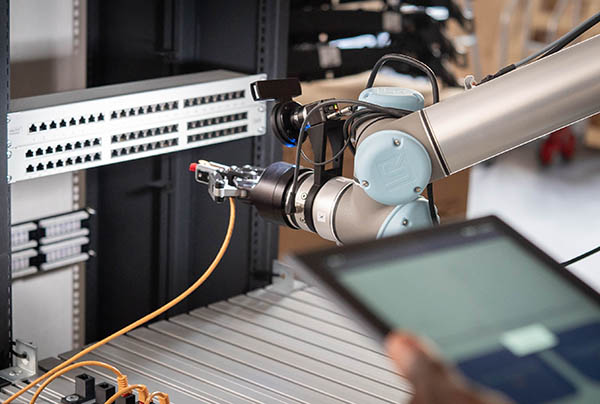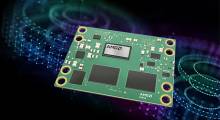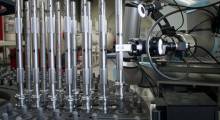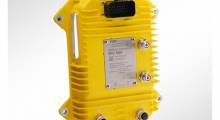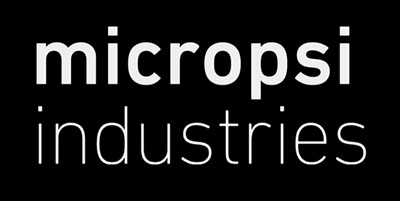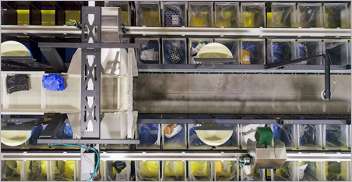As manufacturers struggle with the skills gap, robots need to be easier to train and use. Micropsi Industries GmbH today announced that it has successfully closed its $30 million Series B funding round. The company said it plans to use the new funding to expand operations in the U.S., ramp up sales efforts, and expand to more robot platforms.
Founded in 2014, Micropsi said it provides artificial intelligence controls for industrial robots to enable manufacturers to automate processes that could not be automated previously. The company's MIRAI product uses cameras and sensors so that collaborative robot arms can react in real time to dynamic conditions in a workspace. People can use the software to train robots to perform hand-eye coordinated actions in industrial environments, it added.
“Our technology makes it easy to transfer dynamic motion know-how from humans to robots,” said Ronnie Vuine, co-founder and CEO of Micropsi. “We have not optimized the textbook approach for specific applications but took a radically different approach inspired by how humans coordinate motions. MIRAI is a proven and independent technology that’s working 24/7 in the factories of our customers. That is what convinced our investors: Here is a company that can already verifiably do what many current startups only promise to develop.”
MIRAI offers easier robot training
Industrial robots can help compensate for labor shortages and insecure supply chains, noted Micropsi, which has offices in Berlin and New York. For example, the manufacturing skills gap in the U.S. could result in 2.1 million unfilled jobs by 2030.
Before factories can put robots into service, however, a lot of preparatory work is necessary, noted Micropsi. Specialists must develop code line by line to trigger each movement of the machines. This is complex and expensive and makes robots inflexible, as variance in positions or materials can throw them off, according to the company.
Micropsi said MIRAI changes this situation. Using AI, workers can train an industrial robot arm through demonstration. A human guides the robot arm through the work task, which then learns and carries out the movements autonomously. In doing so, it is able to handle variance and changes in the environment and the robot’s target at execution time.
Once configured with MIRAI, a robot arm can perceive its workspace through cameras and continuously adjust its movements as it performs a task. MIRAI skills are not programs; they are collected intuitions of human movement that MIRAI then intelligently transfers t
This capability expands the commercial potential of industrial robots, allowing them to handle complexity and keeping them flexible even as conditions change, claimed the company.
MIRAI has been successfully deployed in assembly, material handling, and quality-control applications in a wide range of industries. Companies like Siemens Energy, automotive supplier ZF Group, and European home appliance maker BSH are already using MIRAI in production, said Micropsi.
Investors to support Micropsi expansion
New investors Metaplanet Holdings, VSquared,
“Intelligent robot automation could tap into a currently locked productivity pool” said Rauno Miljand, managing partner at Metaplanet. “The end-to-end learning solution built by Micropsi is one of the most advanced systems in the market and is well-positioned to unlock potential in a wide array of industrial settings. The ease of use and the fast learning cycle make it one of the most scalable platforms in the industry.”
Tallinn, Estonia-based Metaplanet said it invests in early-stage companies working on potentially disruptive technologies. It added that it helps startups with knowledge and network across sectors.
Munich, Germany-based Vsquared Ventures said it backs companies with the potential to become global leaders in future markets created by technological breakthroughs. Its portfolio includes companies such as Isar Aerospace, IQM Quantum Computing, Morpheus Space, and Zama.ai.
Ahren Innovation Capital said it invests in startups at the cutting edge of deep science and deep technology. The London-based company said it provides long-term capital and support to “exceptional” founders and teams, empowering them to achieve the unimaginable.
Micropsi added that it has hired robotics expert Prof. Dominik Bösl as managing director to be in charge of its ambitious technology roadmap. Bösl previously held positions at Festo, KUKA, and Microsoft.
Article topics
Email Sign Up

